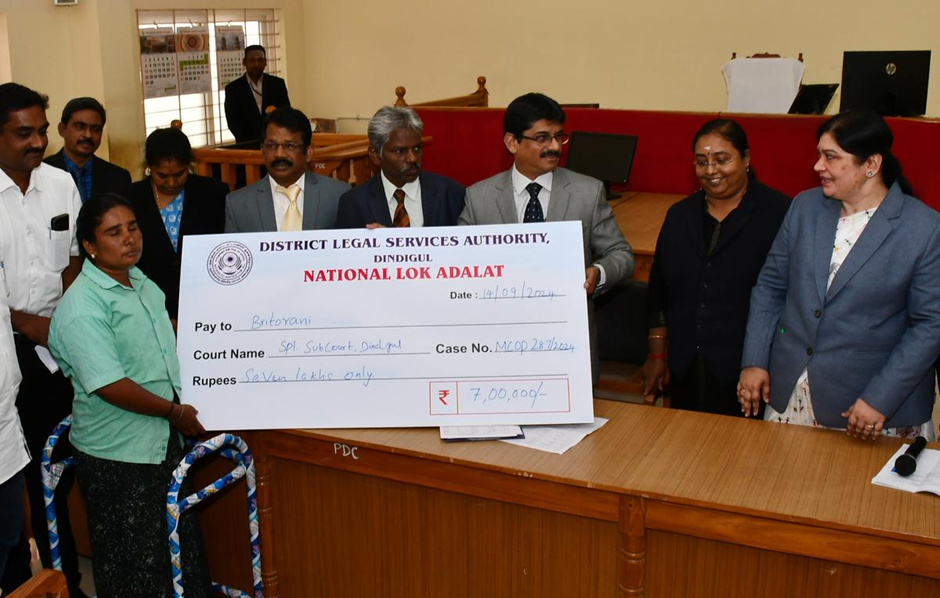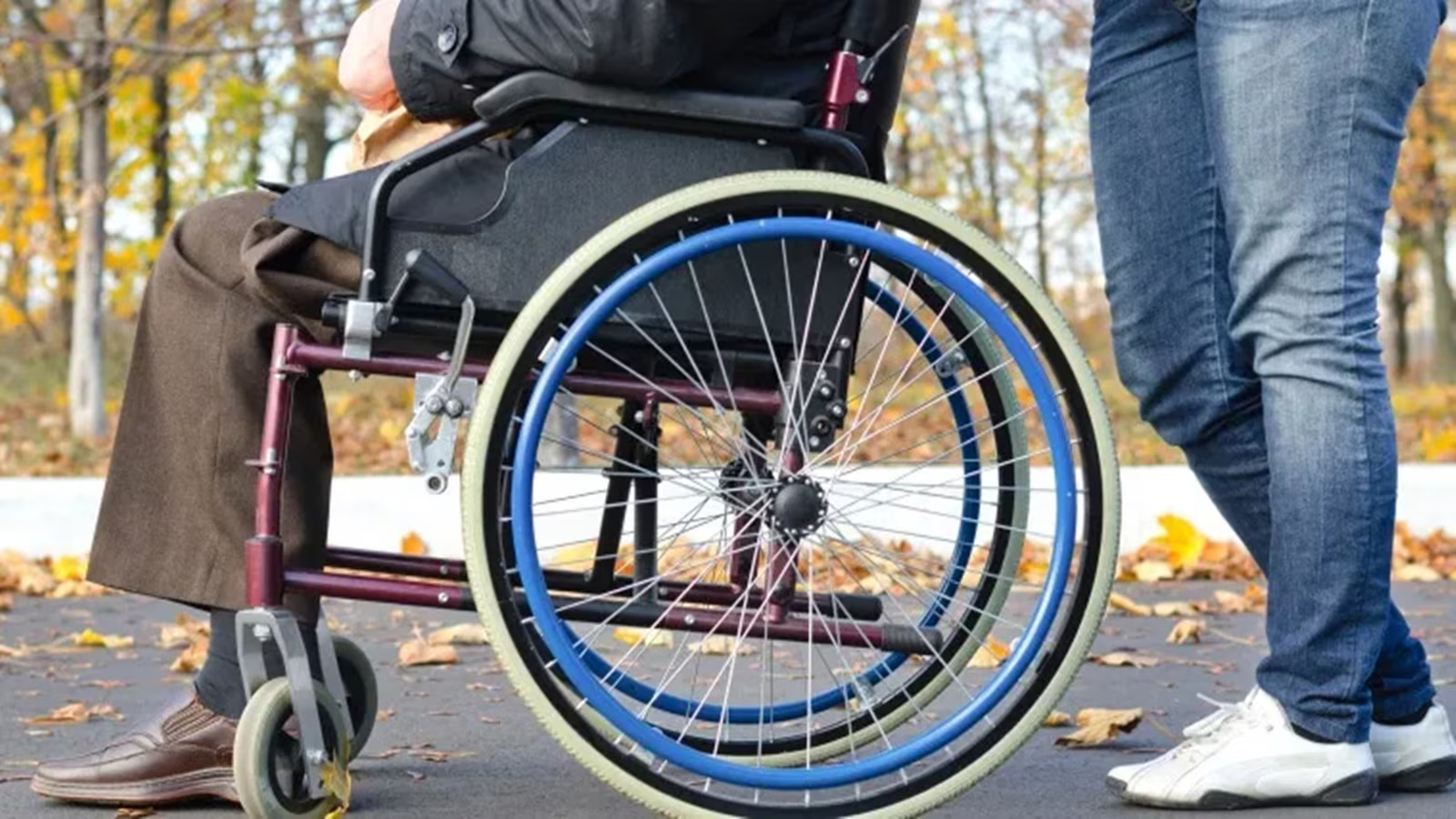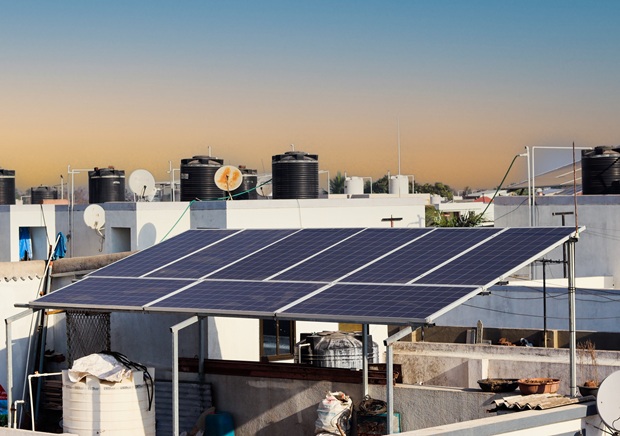- Courses
- GS Full Course 1 Year
- GS Full Course 2 Year
- GS Full Course 3 Year
- GS Full Course Till Selection
- Online Program
- GS Recorded Course
- NCERT (Recorded 500+ Hours)
- Polity Recorded Course
- Geography Recorded Course
- Economy Recorded Course
- AMAC Recorded Course
- Modern India, Post Independence & World History
- Environment Recoded Course
- Governance Recoded Course
- Science & Tech. Recoded Course
- International Relations and Internal Security Recorded Course
- Disaster Management Module Course
- Ethics Recoded Course
- Essay Recoded Course
- Current Affairs Recoded Course
- CSAT
- 5 LAYERED ARJUNA Mentorship
- Public Administration Optional
- ABOUT US
- OUR TOPPERS
- TEST SERIES
- FREE STUDY MATERIAL
- VIDEOS
- CONTACT US
3rd National Lok Adalat Settles Over 1 Crore Cases
3rd National Lok Adalat Settles Over 1 Crore Cases

On September 14, 2024, the National Legal Services Authority (NALSA) conducted its third National Lok Adalat, successfully settling over one crore cases, which is a significant step toward reducing the backlog in the Indian judiciary.
- This initiative shows the commitment to provide quicker and more accessible justice.
Key Statistics
- Total Cases Settled: 1,14,56,529
- Pre-Litigation Cases: 94,60,864 (approx. 82.7%)
- Pending Cases: 19,95,665 (approx. 17.3%)
- Total Settlement Amount: ₹8,482.08 crore
- Geographical Coverage: Conducted across taluks, districts, and High Courts in 27 states.
Types of Cases Settled
The cases included a variety of legal matters, such as:
- Criminal compoundable offences
- Traffic challans
- Revenue cases
- Bank recovery cases
- Motor accident claims
- Cheque dishonour cases
- Labour disputes
- Matrimonial disputes (excluding divorce)
- Land acquisition cases
- Intellectual property rights
- Consumer matters
- Other civil cases
About National Legal Services Authority (NALSA)
- Established: Under the Legal Services Authorities Act, 1987.
- Purpose: To provide free legal services to weaker sections and organize Lok Adalats for amicable dispute resolution.
- Leadership: The Chief Justice of India is the patron-in-chief, and the second senior-most Supreme Court judge is the Executive Chairman.
- Structure: NALSA has established State Legal Services Authorities, High Court Legal Services Committees, and District Legal Services Authorities across India to implement its policies.
Free Legal Services Provided by NALSA
- Payment of court fees and other charges.
- Legal representation.
- Obtaining certified copies of legal documents.
- Preparation of appeals and necessary legal documentation.
Eligibility for Free Legal Services
Eligible individuals include:
- Women and children
- Members of SC/ST
- Industrial workmen
- Disaster victims
- Disabled persons
- Persons in custody
- Individuals with annual incomes below ₹1 lakh (or ₹5 lakh for Supreme Court services)
- Victims of trafficking or beggars.
Constitutional Provisions
- Article 39A: Provides for free legal aid to ensure justice for the poor and weaker sections.
- Articles 14 and 22(1): Obligate the State to guarantee equality before the law and justice based on equal opportunity.
Key Facts About Lok Adalats
- Nature: An alternative dispute resolution mechanism that settles disputes amicably at both pre-litigation and court stages.
- Conduct: Organized by NALSA and other legal services institutions.
- Statutory Status: Established under the Legal Services Authorities Act, 1987.
- Appeal Process: Awards by Lok Adalats are final and binding, with no scope for appeal in courts, though parties can initiate litigation if unsatisfied.
- Fees: No court fees are applicable when filing in Lok Adalats.
Types of Cases Eligible for Lok Adalats
- Any pending case before a court.
- Any dispute likely to be filed in court, excluding non-compoundable offenses.
Non-Compoundable Offenses
These are serious crimes that cannot be settled through compromise and typically involve the state as the prosecuting party.
Conclusion
The success of NALSA's third National Lok Adalat in settling over one crore cases signifies a substantial move toward alleviating the judicial backlog in India. By addressing both pre-litigation and pending cases, NALSA is not only fostering quicker resolutions but also promoting access to justice for marginalized communities. This initiative, coupled with the constitutional backing and free legal services, reinforces the commitment to uphold legal rights and ensure fair treatment under the law. Continued efforts in this direction are essential for enhancing the efficiency and effectiveness of the Indian judiciary.
Must Check: Best IAS Coaching In Delhi
UPSC Prelims Result 2024 Out: Expected Cut Off & Other Details, UPSC Prelims 2024 Answer with Explanation, Daily Prelims Quiz, Daily Current Affairs, MONTHLY CURRENT AFFAIRS TOTAL (CAT) MAGAZINE, Best IAS Coaching Institute in Karol Bagh, Best IAS Coaching Institute in Delhi, Daily Mains Question Answer Practice, ENSURE IAS UPSC Toppers, UPSC Toppers Marksheet, Previous Year Interview Questions, UPSC Syllabus




